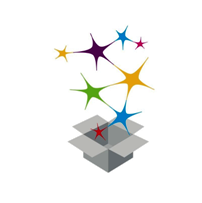OVERALL AIM OF THE ECECC
To promote creativity and growth of an entrepreneurial spirit within the school curriculum in Europe by giving teachers the opportunity to test/practice different methods in a safe environment at a European Educational Event (EEE) i.e. teachers “daring to do”.
To develop the concept that to be enterprising is to have a global mindset that includes skills, behaviours and attitudes and is not rooted in business and economics
To provide processes to override the problems of implementing “one” entrepreneurial pedagogic by not using one universal application, i.e present a range of approaches focusing on the effects and values of the pupils instead of a pedagogical method itself
To provide teachers with the relevant skills, attitudes and behaviours to embed a spirit of enterprise and creativity in the classroom and the curriculum so as to promote children’s natural creativity in early years and support the continues development of this natural creativity in all subjects at all levels in the school educational system
To foster interchange and cooperation amongst teachers at different levels in school education by developing a EEE and educational material where best practice cases are presented, explored and delivered
To enhance the European dimension in teacher training by creating a regular EEE and a dynamic European educational material.
To increase the attractiveness of the teaching profession, by giving teachers the opportunity to reflect and analyse their own profession (in regards to creativity and innovation) from a scientific standpoint through (like in medicine) paper conference within the concept of a regular EEE
IMPACT
The primary target group is teachers in school education (i.e. pre-primary up to Upper secondary). And the proposals secondary target group is school managers at the same levels. This proposal hopes to provide tools/processes to support the pupils natural creativity through the whole schools system, innovation, creativity and entrepreneurship as a connecting though in the education system (see Relevance). Regional efforts regarding events concerning solely transfer of knowledge have had great impacts on both the teachers and pupils in regards to their sense of initiative, creativity and entrepreneurship. Demonstrated on the quality of cases presented (Final report Drivkraft, B. Lodmark 2006-2008).
With educational possibilities as well as the more scientific approach a greater impact can be envisaged and be measured through comparison and evaluation of the different events (test and final, see WP 3 and WP6). Furthermore the sustainability of the education events through sponsorship etc will give long term impact in terms of numbers of teacher reached but also in terms of development levels, since it is a regular and continues training event.
Dissemination will be made through the networks of the consortium and the associated partners (for ex. EZA, CEC -networks). Since the European educational event will be constructed in accordance with the criteria of Comenius Mobility grants, teachers and school managers all over Europe will have the chance to participate. Information activities will also be made in the countries of the consortium. The concept of local seminars as a secondary option to “participate” in the European Education Event gives more persons an opportunity to “participate”.
The planed number of participants are; 200 for the test event plus 100 participants in each local seminars. At the final event 1500 participants from all over Europe is anticipated, plus 100-150 to each local seminar. In addition to this Web-streaming will also be produced.
DISSEMINATION
Dissemination and promotion will take place in all partner counties and through networks of the consortium and associated partners in other European countries (European Network of Workers Questions, EZA; Comité Européen de Coordination CEC etc).
A dissemination routine and list will be set up at the 1st steering committee, special marketing plans for the different events will also be set up. The proposal will use different kinds of media throughout the projects (leaflets, articles, websites, project blogs, newsletters, mailing lists etc). Interim dissemination reports will be made to every steering committee to ensure a good update for the consortium in regards to dissemination and also function as an early warning tool. Dissemination will also be a recurrent part of the development workshops (Sharing of knowledge..) in order to ensure that the aspect of dissemination is taken into account when developing the education material and event.
METHODOLOGY
The methodology builds on a dynamic process under constant development, based on reflection and learning from each other. The reason for this is that creativity, innovation and entrepreneurship, its not a "subject" or something uniformed and an individuals own pre-requisitions also needs to be taken into account, i.e., one "quick fix" with one universal recipe can not be applied, it goes against the very concept of innovation and creativity. By focusing on the process the transfer of know-how can be easier transferred between the different contexts, educational levels and educational systems of Europe. In terms of the work packages of a development character the method will use the same technique but with a didactic onset on the effects and values of the pupils.
